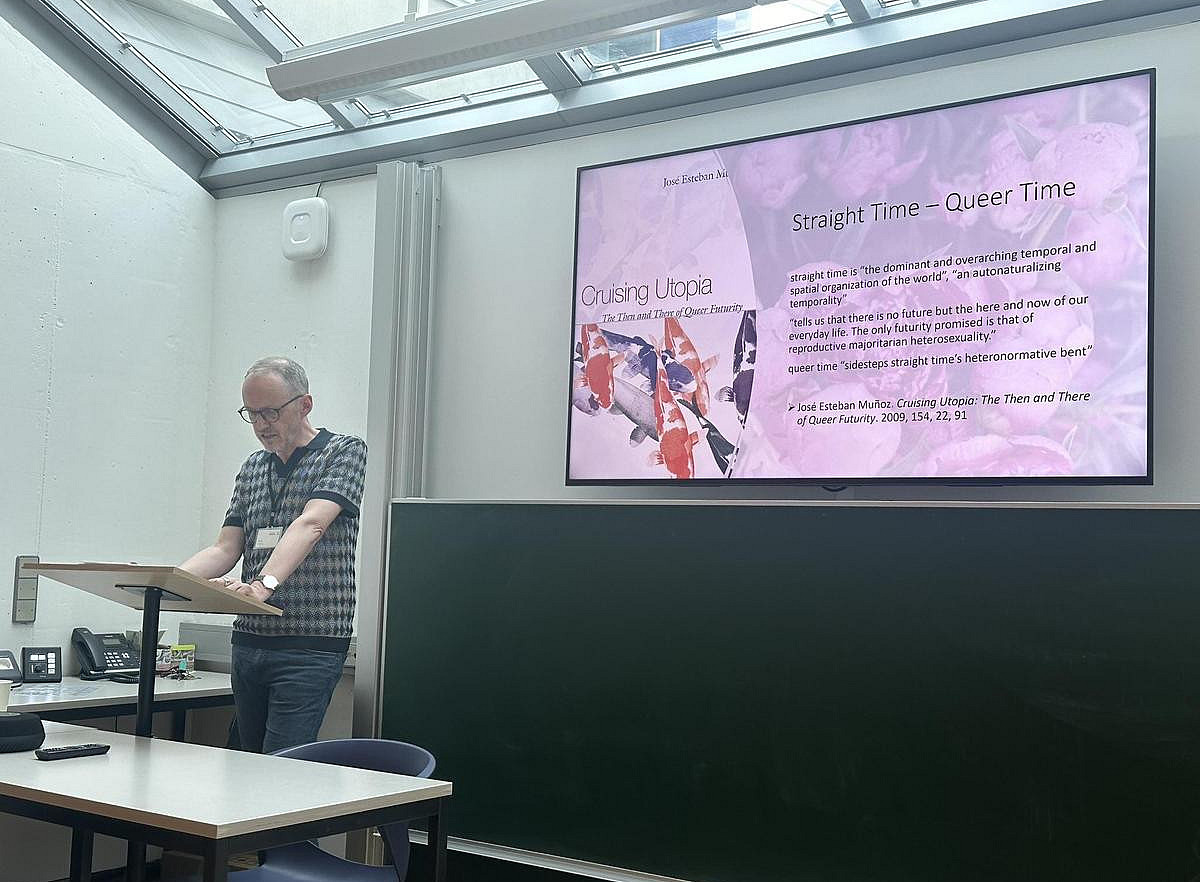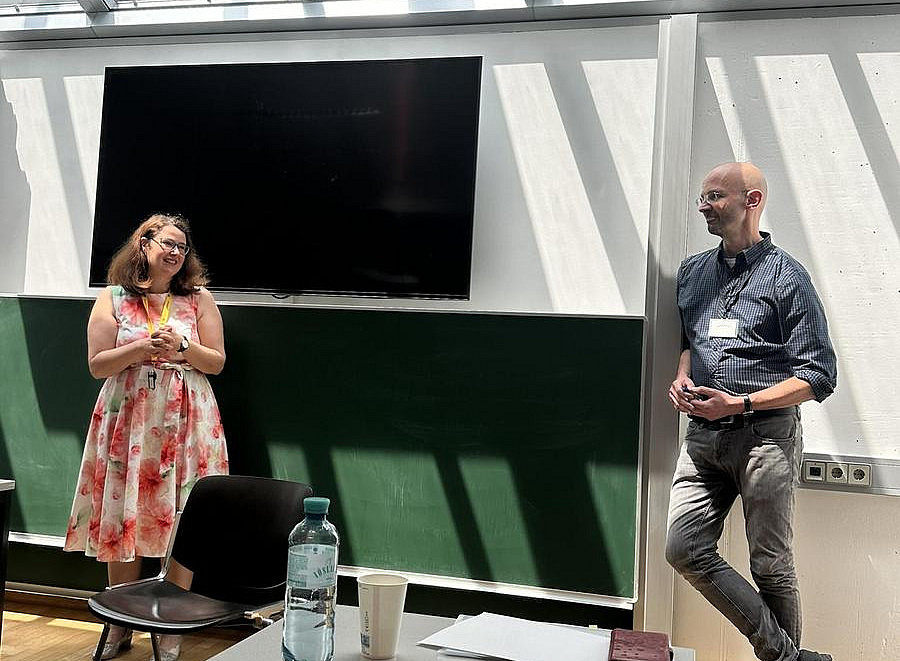On June 18, 2024, a group of driven doctoral students braced the heat of an early summer day in Graz to present their projects to an international crowd of colleagues, professors and keynote speakers in a workshop entitled “Mind Games: Perception in Words, Worlds, and Frames.” The workshop was jointly organised by the Department of American Studies, most notably Stefan Brandt and his team (Lisa Buchegger and Philip Steiner), and the Doctoral Programme “Culture – Text – Action”, situated at the Centre for Cultural Studies, represented by Christine Schwanecke.
The nascent PhD theses presented were as versatile as they were interesting. While Lisa Buchegger, from the Department of American Studies, talked about varieties of villainy in American film and television, Riccardo Buonamici, from the Department of English Studies, addressed the forms and functions of moral ambiguity in the English Picaresque tradition via narratological analysis. How do we perceive stereotypes? How are intricate narratives used to cast into doubt the moral qualities of characters?
Well-caffeinated after a break, Sina Krottmaier, from the Centre for Information Modelling, introduced us to the world of horror videogames, asking “what scares us the most” from a data-driven, IT-informed angle of research. Continuing in the vein of intermedial analysis, Philip Steiner, from the Department of American Studies, shared his first explorations into the polysemous functions of literary features in music, film, and video games. How is horror and fear constructed? What are the forms, affects and effects of intermediality today?
The one-day doctoral workshop would not have been complete without its keynote speakers Jørgen Bruhn, from the Centre for Intermedial and Multimodal Studies at Linnaeus University, Sweden, as well as Ralph Poole, from the Department of English and American Studies at the University of Salzburg. While the first keynote addressed “Intermedial Studies as Environmental Theory”, pointing not only to cutting-edge research in the field, but to pressing matters of social concern, the second focused on tricky minds and “The Queer Virtuosity of Deception in Mary Wilkins Freeman’s ‘Understudies’.” While starkly different at first sight, both keynotes made it clear that the transdisciplinary study of perception – be it in cognitive narratology, intermediality theory, as well as literary and cultural studies – is a fruitful, open field of research equipped to contribute to answering urgent questions regarding carbon-neutral futures or building inclusive societies for all genders.
Thanks to the generous support of IASA, the International American Studies Association, and its commentators present during the day, S. Bilge Mutluay Çetintaş, IASA president, from Hacettepe Üniversitesi, Turkey and Paweł Jędrzejko, Co-Editor-in-Chief of RIAS, from the University of Silesia in Katowice, Poland, the workshop was a success, leaving four doctoral students of the University of Graz with in-depth feedback, new international connections, and most importantly, in good spirits, motivated to get started on their projects.

